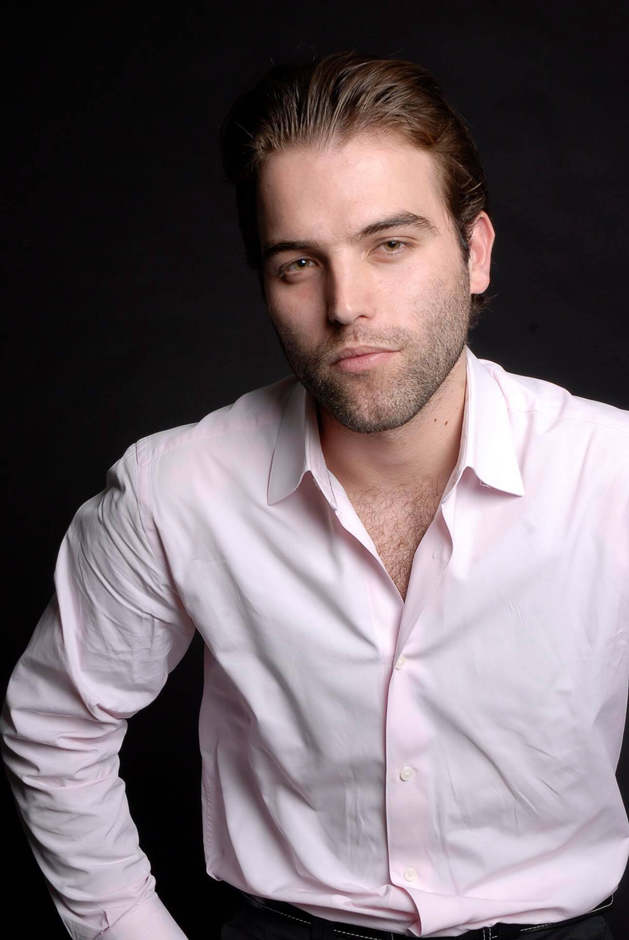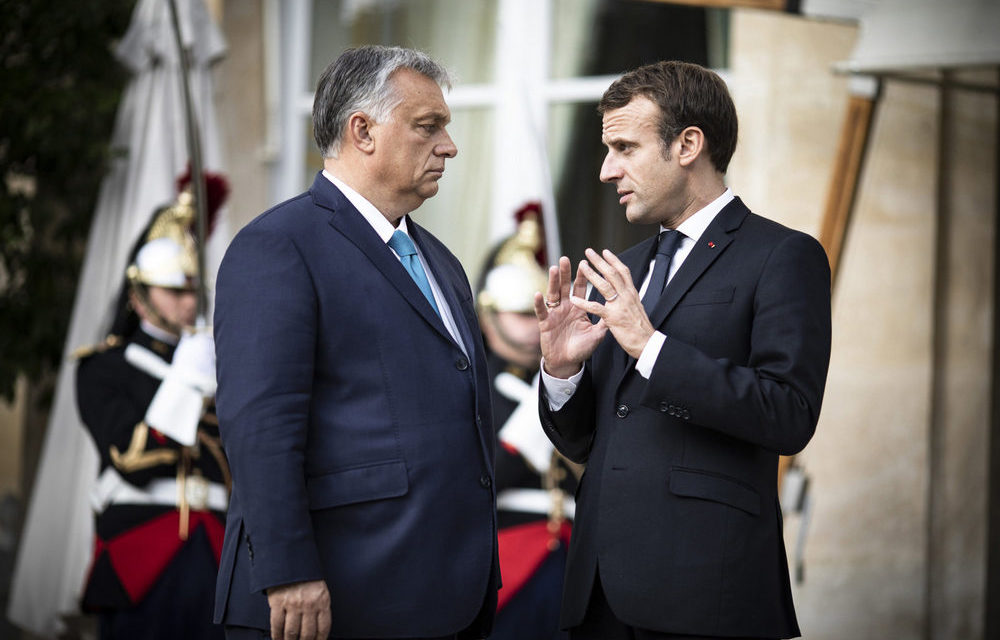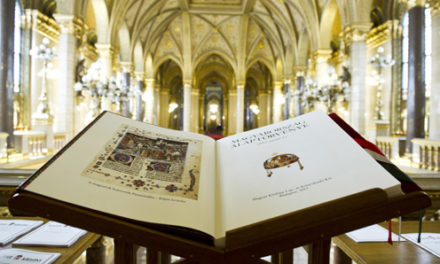There is no nostalgia for the West in Eastern European countries either, they do not want to copy the system there, rather they follow their own cultural path. Orbán understood the challenges of the new century, while Macron is a man of the nineties, claims French historian Max-Erwan Gastineau, who gave an interview to the Sunday Newspaper on Kossuth Radio about the fundamental difference between Central Europe and the West.
- Mr. Gastineau, a few days ago you published an article in one of the largest French newspapers, le Figaro , in which you wrote about the pedophile law. This is not the first time that he has defended the Hungarian government. Why do you feel it is important to explain the background of decisions to the West?
– It is not my duty to defend the Hungarian government, rather I try to explain to Europe that there are two Europes, both historically and culturally. I don't like the arrogance of the West, which thinks that Western democracy should be applied everywhere and that it is the best democracy in the world. As if
would have you believe that Eastern Europeans are not worth as much as they are.
First of all, you need to know the history of these countries, Poland, Hungary, in order to understand why they do this or that.
This is also why I write relatively much about Hungary, because I believe that what you are doing is the defense of a social model based on the criticism of liberalism. This is a very interesting proposition for me, and many of its elements are based on reality and truth.
We French, instead of criticizing, should adopt some of these items and integrate them,
which Budapest criticizes in the case of the Union and the West.
– And why is this kind of illiberalism interesting to you?
- Because nowadays people tend to confuse Europe with liberal values. Of course, liberalism is an important philosophy, human rights are important, everything that builds on the individual, but societies, whether in the West or the East, are not only built on these rights. We have traditions, history, morals. Europe is built not only on rights and the individual, but also on history, culture, and a unity in which we find Christianity. Europe needs both poles, individuals as well as social communities. I believe that all of these can coexist, the West based on individuals and the conservative social structure of Central Europe.
- Seventeen of the 27 countries were against Hungary and seven were in favor of the pedophile law debate. Among the latter, we find Slovakia, Slovenia, Poland, the Czech Republic or Lithuania. Isn't that a coincidence?
- No. But they don't want to understand this in France either, even though there have been countless televised discussions about it. Here, they think that everyone agrees with Brussels values, they don't realize that there are differences. Not only East and West, but also between different countries. If we look at which countries were against Hungary and which were for it, we can see that there is a sharp difference. The West must realize that the liberal morality that was born in the 60s and 70s does not have such a strong following in the East precisely because of their traditions and specific history. The latter tends to be neglected here in the West. That is why we need to know each other, the history of Hungarians. Certainly many of you fought against communism with liberal principles, but society is basically more conservative. This is written by Central European writers, such as the Czech writer Kundera, who is well known in France. According to him, while in the West in 1968 they fought for the change of morals and the dismantling of society, in the East, on the contrary, they built on communities and the preservation of Christianity, which was threatened by Communism.
In other words, there were two types of Europe in '68, just as there are two now. And of course there is opposition and rivalry between them. Central and Eastern Europe wants to save Europe, it feels that it is in danger and that it needs help to survive.
"Don't you make the same mistake in West Asia or Africa?" Or just in the Arab countries, for example in Iraq, where the situation is worse than twenty years ago?
"Yes, and I have already written about this in my book." In 1989, America and the Western world believed that all the peoples of the Earth were built on the same foundation. He wanted to see the same model in the Balkans, Central Europe, South Africa or Latin America. This happened all the way until the so-called "Arab Spring". We believed in the same prophecy, the same uniformization. That era is over. I think so
there is no longer any nostalgia for the West in Eastern European countries, they do not want to copy the system there, rather they follow their own cultural path.
We see the same in other parts of the world, such as Asia. China or Singapore follow a different model. Mainly because of the teachings of Confucius, they believe that the world is built on different cultures, and that we can be successful without adopting the Western model that they tried to force on them in the 90s.

Max-Erwann Gastineau Source: Hungarian Nation
"And who do you think will understand whom?" West or east or vice versa?
- Not everything is black and white, as there are differences between Central European states, there are disputes, there are also social democrats, conservatives, or liberals, just like in the West. In France, too, the view that French and European traditions must be protected has very strong foundations. Many French are against multiculturalism or rainbow families. Many people do not want migrants who are unable to integrate. And the practice of the people forcing their will on the politicians is getting stronger and stronger. This happened, for example, in Great Britain. They expect the strength of the family and respect for European tradition against globalization.
– Is there a chance that Emmanuel Macron will one day understand what Orbán wants?
"No, I don't think so." If you read his speeches, debates, you can see how
Macron is a man of the nineties of the last century.
He still believes that there is a consensus around the world about what constitutes democracy or human rights. He did not understand that all this was a bit idealistic on the part of the West. In the nineties, something else started. I read a lot of Orbán's speeches, which revealed that there are many movements in the world. Huntington said the same thing when he talked about the battle of civilizations. Maybe Macron also understood all this, yet he clings to the roots of an old world. And the French tradition, the French or the European spirit is no longer inherited from this root. It favors abstract values and tries to defeat Central Europe, which rests on conservative traditions. That's why he won the elections a few days ago. It is true that these results also showed that a large part of the French had turned away from politics. This takes the form of physical indignation, namely by not going to vote. "Why should I leave?" they ask the question. The problems have been the same for 30 years: unemployment, migration, which leads to domestication, Islamization, and then terrorism. There are the abandoned former industrial regions, the problem of education. Politics has not had an answer to this for a long time. And if there is not, then why should we choose them. The French are still interested in politics, but they see the incompetence of the politicians, because they cannot solve the problems that the French nation raises.
– You will have elections next year. The name of the well-known publicist Eric Zemmour was also mentioned as a possible president of the republic. He is the one who often also defends our country, for example the family model that the Hungarian government follows. Is it conceivable that he would run in the election?
– I admit, it is difficult for me to imagine that Éric Zemmour would accept the nomination. It is not even certain that he would be the ideal solution. Zemmour is a great individual, talented in the field of media, he protects his own interests well, but politics is different.
People who are against multiculturalism are probably waiting for an insider to fill this position. A strong man, such as General de Gaulle or earlier, for example, Napoleon, who carried national unity within themselves. A strong state with patriotic Frenchmen.
And Zemmour may not be the right solution for that. The part of the French that fights against multiculturalism and migration, and that agrees with Zemmour on many issues, may not vote for him as a politician.
- Zemmour would be ideal for the Hungarians, as he understands what the government wants. Do you know that it is a great pain that in history, but especially in the 20th century, we often looked for contact with the French, with French culture, but we got Trinaon instead, and then they didn't help us in '56. Why? Maybe because they didn't understand the processes here, or because Hungary is a small country and the French weren't interested?
- First of all, many French politicians understand and support the Hungarian government, such as Bellamy or Julien Aubert. They know how to manipulate the Hungarian government from Brussels. Regarding the other half of the question, you are right, the French often have arrogance towards Hungarians or Eastern Europe. We do not understand how tragic history was for these nations and how aware they are of their fragility. These peoples have already sensed the death of the nation. We, on the other hand, believe that we will live forever, that we are indestructible. That's why we don't see the danger, on the other hand, in Central and Eastern Europe they are aware of this and are doing everything to ensure that the nation survives the difficult period.
- A colleague of a young historian, Thibaud Gibelin, who also spoke here in the Vasárnapi Újság in March, wrote a book "Orbán plays and wins" . Do you agree with this?
– I think Orbán is a talented and refined politician who understood what the people wanted. When I participate in political debates in the French media and it is about him, I tend to say that he is not only a politician, not only a good strategist, but also a good theoretician. He puts into practice what he says, and this is very interesting to me as a historian: whether we agree with him or not. And it is also certain that he is one of those rare politicians who has a vision and who implements these visions. Yes, Viktor Orbán plays and wins because he has a vision of the world that matches the vision of the Hungarians, and even more broadly, the vision of the European peoples. And this is nothing but the return to nations, the protection of threatened national cultures and traditions, and the image of a strong state based on the nation's interests - Max-Erwan Gastineau finally answered.
Source: hirado.hu
Cover photo: Illustration - French President Emmanuel Macron (l) and Prime Minister Viktor Orbán after their meeting at the Elysée Palace in Paris on October 11, 2019.
MTI/Prime Minister's Press Office/Balázs Szecsődi












